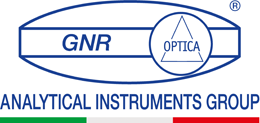S5 - Solaris Plus (SCP)
Outstanding CMOS Based Optical Emission Spectrometer for Metal Analysis
S5 SOLARIS Plus (S5 SCP) is an advanced CMOS based optical emission spectromter for Metal Analysis. S5 SCP offers the perfect solution for Metal Analysis: reliability and accuracy in results, superior analytical performance, ease of use and attractive price.
With more than 600 units installed all over the world, S5 SCP is the most popular model of GNR range of spectrometer.
S5 SCP represent the ideal solution to be used in any working place (Office, Laboratory, Stock, Production), thanks to the reduced dimensions and to the quality of components.
GNR Technicians have introduced during the years several innovative and technological advanced solutions, which makes S5 SCP system fully suitable not only for general purpose applications but also for specific demands.
S5 SCP instrument is offered as standard configuration as well as it can be easily customized in terms of optical parameters, different gratings and detectors, elements and analytical range to fulfil the most strictly analytical demands
It is the perfect unit to perform multi-matrix analysis on both Ferrous and Not Ferrous Alloys.
- Iron and Steel and its alloys
- Copper and its alloys
- Nickel and its alloys
- Aluminum and its alloys
- Cobalt and its alloys
- Magnesium and its alloys
- Lead and its alloys
- Tin and its alloys
- Titanium and its alloys
- Zinc and its alloys
Optical System
- Optical Air System: Multi High Resolution CMOS solid state detectors
- High luminosity holographic grating
- Source: Multi-frequency spark source. Excitation parameters controlled by computer
- Vacuum Pump System
Other Information
- Power Supply: 110/220 V AC 16 A 1 KW
- Dimensions: W 60 x D 36 x H 62 cm
- Weight: 100 Kg (w/o stand)

MetalLab32 Software, operating in Windows environment, is the GNR proprietary SW very functional and easy to use.
Operator can use all the spectrometer's functions in a flexible way and cover all the requirements.
Some of the most important functions are listed:
- Analysis
- Automatic Standardization
- Printing of the Certificates
- Determination of alloys in accordance to international norms (UNI, ASTM, DIN, ...)
- Network linking and remote control
- Autodiagnosis
Registration required
To access website downloads, please register.




















